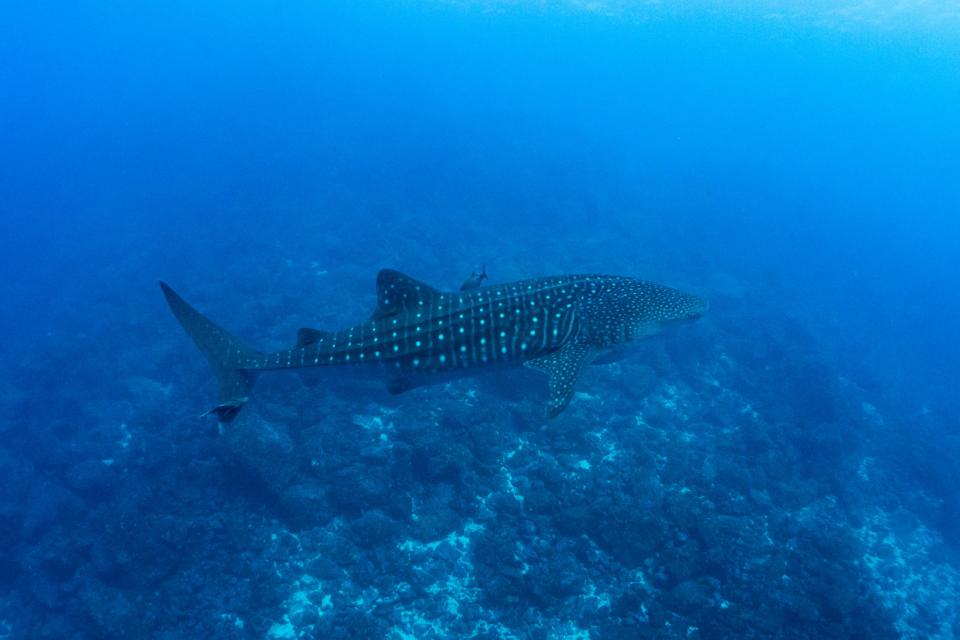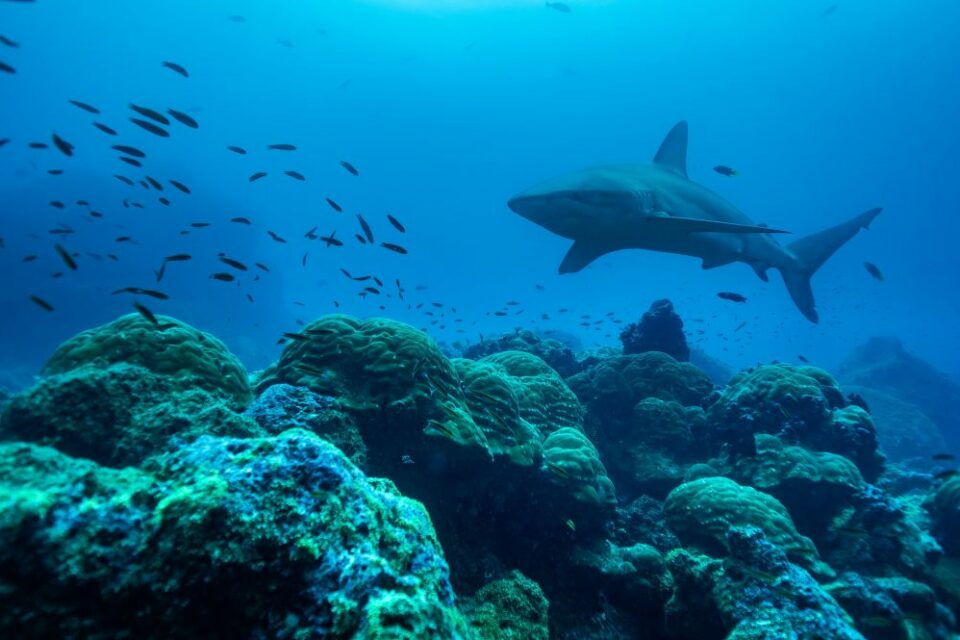

Illegal shark fishing boat crew prosecuted
An update on the case of the 'Fu Yuan Leng 999', a Chinese fishing vessel that was caught in the Galapagos Marine Reserve with over 6,000 dead sharks on board.
In mid-August 2017, a Chinese fishing vessel Fu Yuan Leng 999 was intercepted in the Galapagos Marine Reserve by Galapagos National Park rangers and members of the Ecuadorian Navy. What they found sparked outrage across the Galapagos Islands, and the world. Among the 300 tons of fish on board were more than 6,000 sharks, including endangered species such as the whale shark and scalloped hammerhead shark. While, it is unknown whether all of these individuals were caught inside the Reserve, it is likely that Galapagos species were directly affected given the large numbers of sharks found in the waters around the Islands. The crew were taken into custody and charged with trafficking protected species.
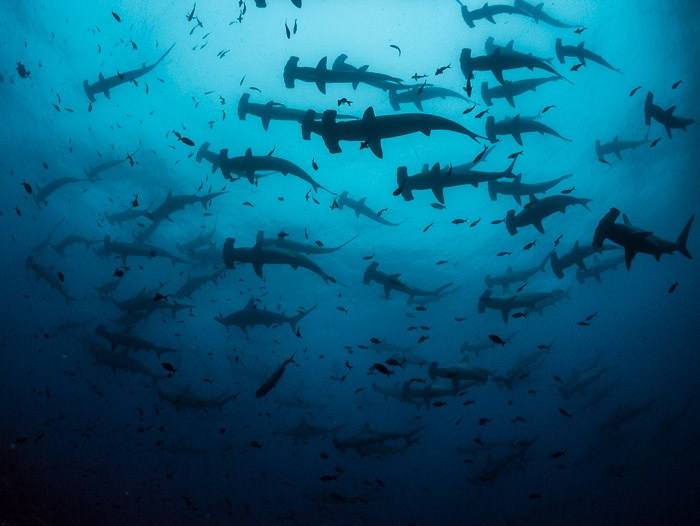
Scalloped hammerhead sharks are found in large numbers in parts of the Galapagos Marine Reserve © Simon Pierce
After a successful trial, the judge sentenced the crew to between one and four years in jail, and set a fine of around $6 million. The cargo was successfully destroyed and the ship confiscated. However, the defence appealed and there was another hearing on 21 November 2017. While the jail sentences were reduced (three years for the captain and his deputies, and one year for the crew members), the fine was upheld as compensation for the environmental damage caused. There is a chance that the defence might appeal again, this time to the National Court of Justice, but the outcome of the hearing was good news for the Galapagos National Park. The upholding of the fine has proved that they acted in an appropriate and legal way in order to defend the rights of nature.
The Galapagos Marine Reserve is a haven for endangered species of shark, and protection for these species has been increased in recent years. Ecuador has set an example for those who have exploited endangered species and hopefully this case will act as a strong deterrent against future illegal fishing activity in the Galapagos Marine Reserve.
To find out more about the story, watch this video from the Galapagos National Park.
Please help us protect the endangered sharks of Galapagos by donating today!
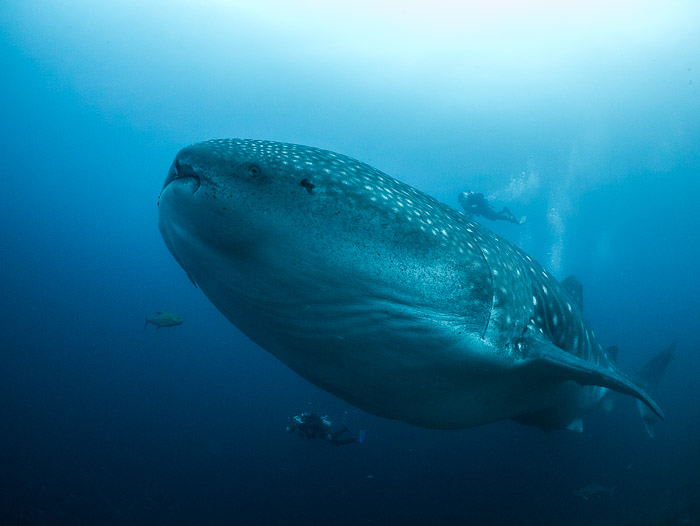
Help us save Galapagos marine species, like the whale shark © Simon Pierce
Related articles

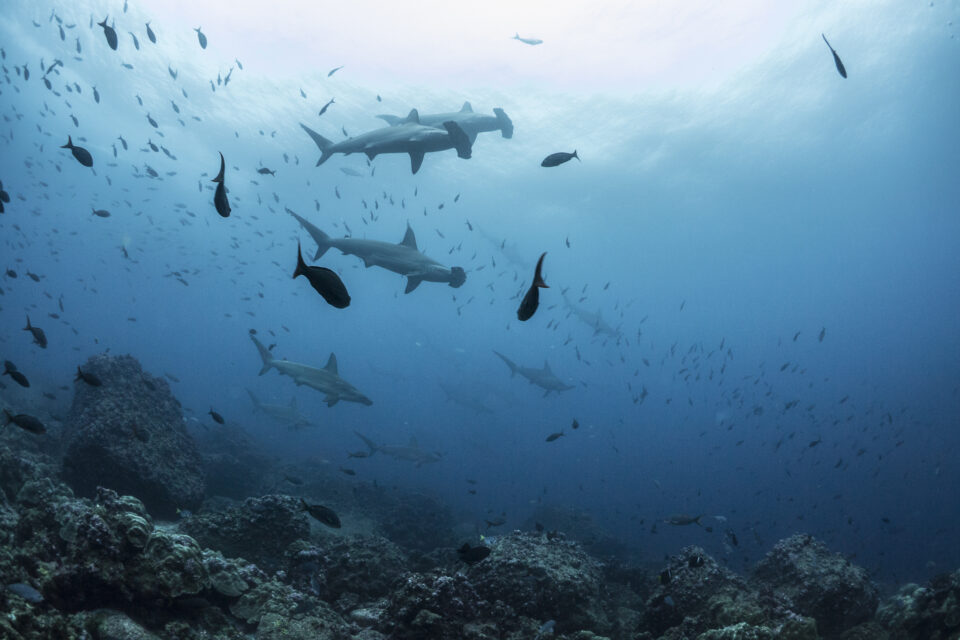
Galapagos marine reserve expansion brings hope - but new management challenges
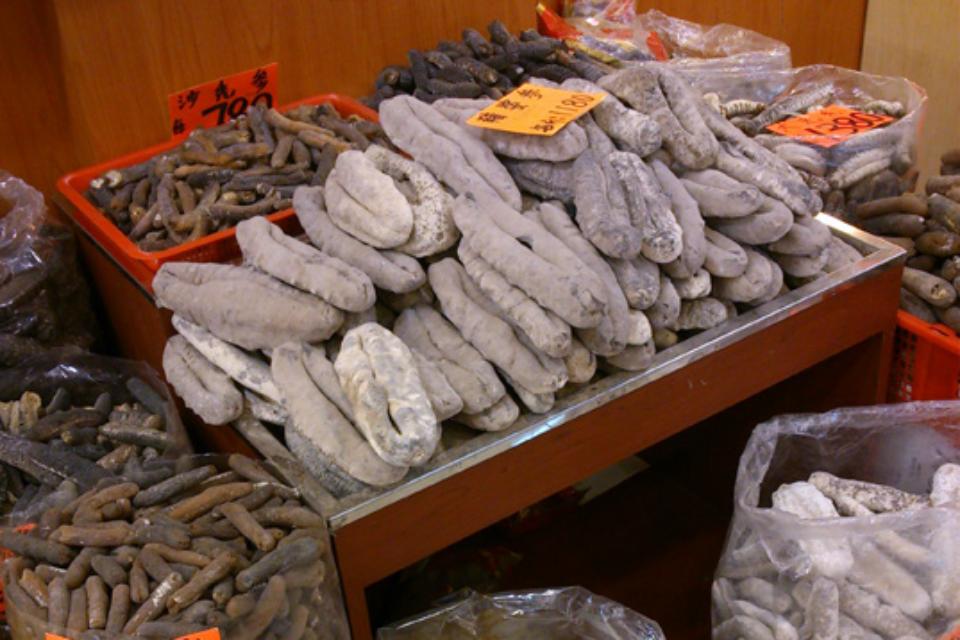
Global relevance: COVID-19 and sea cucumbers
